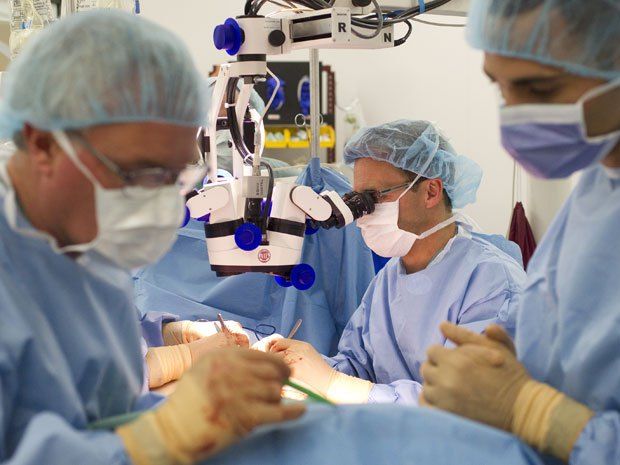For Pakistani women, breast surgeon, be it for cancer or cosmetic purposes, is sometimes more than a physical scar. Its emotional and social impact can be just as difficult, particularly in terms of body image. For some, the concept of surgery isn’t simply about survival or rehabilitation, it’s also about survival against a society that is less than tolerant of change.
Let’s discuss what comes after the surgery, how women feel psychologically, and how they’re finding ways to regain confidence in a world that occasionally refuses to listen.
1. The Silent Struggle After Surgery
However, what’s more challenging is that people don’t often discuss it. Silence. Families aren’t always sure what to say. Friends might steer clear of the subject. And the woman sits alone with the mirror and her mind.

2. The Stigma Surrounding Appearance
It’s not a secret that Pakistani society is cruel when it comes to a woman’s appearance. After breast surgery, women can be ashamed or afraid of wearing fitted clothes, socializing, or even making love to their partner. Being judged or pitied is a real fear.
Some women tend to say:
“What will people say if they find out?”
“Will my husband still find me attractive?”
“Am I still a full woman?”
These are not questions of weakness, but of living in society, which frequently measures a woman’s value by how she looks.
3. Marriage Pressure and Emotional Toll
For unmarried women, the situation is even more dire. Most young women avoid surgery or reconstruction for fear that it will impact their ability to get married. In a society where arranged marriage is prevalent, families might feel it’s best to keep it under wraps or “hidden.
This silence, however, only adds to the emotional weight. These women aren’t just battling for their well-being, they’re battling for acceptance by a society that often doesn’t get it.
4. Mental Health and the Need for Support
Following surgery, some women become depressed or anxious. Body image concerns isolate them. Unfortunately, in most parts of Pakistan, mental health remains a taboo subject, and many women don’t go to therapy or even speak to anyone about what they are feeling.
But hope exists.
In the recent past, support groups have begun to emerge in urban areas such as Karachi, Lahore, and Islamabad. Hospitals such as Shaukat Khanum and Aga Khan have begun introducing psychological counselling under post-surgery treatment. Women who attend such groups attest that they feel more empowered, less isolated, and more in charge of their recovery.
5. How Some Women Are Reclaiming Their Confidence
In spite of the stigma, there are many Pakistani women who are incredibly brave. They’re talking. Some are posting their stories on Instagram or in support groups. Others are encouraging friends or young women who are undergoing the same process.
Women such as Sana, a 37-year-old breast cancer survivor in Lahore, report that telling her story not only assisted others, it assisted her in healing. “Initially, I detested my body,” she confesses. “But now, when I see how my story empowers other women, I feel empowered again.”
6. What Needs to Change?
Although personal bravery is mighty, genuine change must occur in society as well.
More Awareness Campaigns: We require more breast health awareness campaigns that also speak about mental health and body image.
Media Representation: Pakistani media needs to start representing survivors and women with all body types, demonstrating that strength and beauty come in all forms.
Family Education: Families need to be taught how to emotionally support women following surgery, not merely medically.
Accessible Therapy: Breast surgery recovery needs to include affordable mental health care. Physical treatment is just as necessary.
7. Final Thoughts
No woman decides on breast surgery lightly. For health, survival, or personal reasons, it’s a process fraught with emotions, courage, and change. But what follows, stigma, body image war, silence, is something we can do something about as a society.
Pakistani women are entitled to something better than survival, something better than feeling beautiful, complete, and proud of their resilience.
So the next time you encounter a woman who has lived this life, don’t turn away. Don’t pity her. Simply give her your support and respect. Because behind every scar is a survivor’s story. And that is something to celebrate.
Lahore Clinic
- 0324 9780880
- info@drahsanrao.com
- One-stop Clinic (surgical-review,breast ultrasound scan and mammogram, biopsy all in same clinic)
- Shaukat Khanum Hospital Rd, Block R3 Block R 3 Phase 2 Johar Town, Lahore, 54000
Timings
- Assistant : Adeel
- 0324 9780880
- Timings: Tuesday (9 AM to 5 PM) Wednesday (2 PM to 6 PM) Telephonic:(6 PM to 8 PM)
- Copyright © 2024 Dr. Ahsan Rao All rights reserved.

